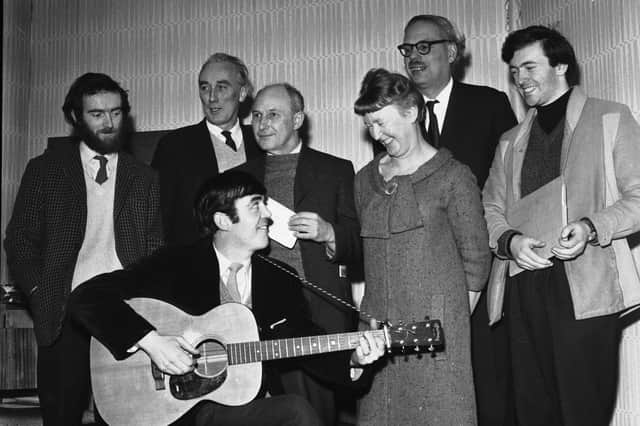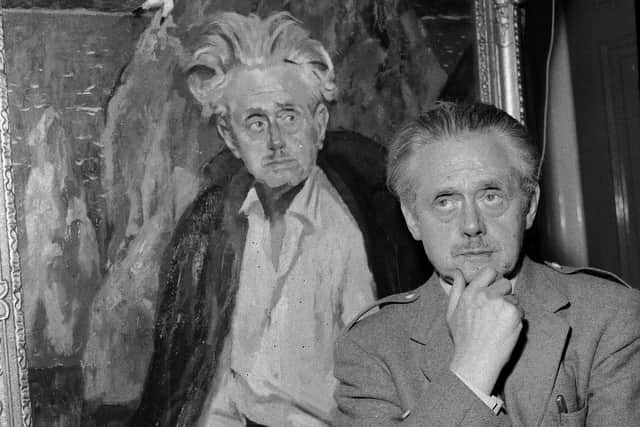Scots: 1.5 million people speak this language. Will it be allowed to die out? – Alexander McCall Smith


To understandable Scottish dismay, Gaelic would then join Cornish, a Brittonic language that died out as a natural first language in the late 18th century, even if a revival in the 20th century meant it has been learned and spoken by a body of language enthusiasts.
Gaelic is by no means at that point of no-recovery, but there are factors which nonetheless limit its prospects, one of which is the relentless march of English as a universal language, and the other is the replacement of original Gaelic-speaking populations by English-speaking incomers.
Advertisement
Hide AdAdvertisement
Hide AdAlthough some Scots are indifferent to the language, most would probably mourn the loss of Gaelic. The language, though, has powerful allies, its main protector being the Scottish government, for whom its fate is a key matter of cultural policy.
Distinctiveness of Scottish culture
Current policy is to insist on an official bi-lingualism even in areas in which Gaelic has not been spoken to any extent for a very long time. Police cars are a bellwether in that respect; the Gaelic for ‘police’is ‘poileas’, and both words are prominently painted on many Scottish police vehicles.
That has been criticised, of course, by those who feel this to be as unnecessary as the conversion of all road signs to show Gaelic names that may not be in everyday use in the area in question.


Critics argue this is designed simply to underline the fact that Scotland is different from England, and that, from a particular political perspective, the more accentuated these differences are the better.
That criticism is rebutted by those who say that Gaelic culture is fragile and needs every possible privilege if it is to survive.
There is considerable force in this sort of argument: the overwhelming majority of Scots clearly value the distinctiveness of Scottish culture and institutions, and resent any casual assumption that we are the same as neighbours to the South.
Canadians tend to support the same broad view and do not take kindly to any failure to recognise the respects in which Canada has an ethos distinct from that of its neighbour. The difference between Canadian and American attitudes to health and welfare care perhaps illustrates that distinction.
‘An angel o the Lord kythed in a draim’
The recent launch of an app to help people to learn Gaelic has given a remarkable boost to the Gaelic lobby. This app quickly attracted a following more than twice the size of the number of actual Gaelic speakers – a welcome indication that there is real interest in this aspect of Scotland’s culture.
Advertisement
Hide AdAdvertisement
Hide AdBut it also raises the possibility of more attention being paid to another language that is indigenous to Scotland and has not attracted the same level of support. This is Scots, a language that according to the same 2011 census is spoken by 1.5 million people in Scotland and understood by a further half million or so.
Here is something written in Scots. “But when Herod died, belyve (at once) an angel o the Lord kythed (revealed) in a draim til Joseph in Egyp (Egypt) an said til him, ‘Rise upo an tak the bairn (everyone knows that one) an his mither an haud awà til the Laund o Israel, for them at socht the bairn’s life is deid.’”
That is a sentence from Professor Lorimer’s celebrated New Testament in Scots, a volume distinguished by the fact that the only person in it to speak English is the Devil!
Vigour and beauty
There are arguments as to whether Scots is a language or merely a dialect. Those issues matter mainly to scholars and purists: for practical purposes, Scots is spontaneously and unselfconsciously appreciated in Scotland, even by those who may, on examination, reveal themselves to have no more than a few words of the language.
These common words, widely understood, include terms such as ‘dreich’, for the sort of weather that usually afflicts Scotland, and 'peelie-wally’ for a generally sickly or insipid feeling.
But in poetry and song Scots is widely used. Versatile poets such as Hugh MacDiarmid and Robert Garioch created a major oeuvre in literary Scots that is far more than a private literary experiment. It expresses a whole Scottish outlook with vigour and beauty.
Similarly, the accomplished novelist James Robertson has rendered many children’s books into vivid and delightful Scots, thereby helping the language to be re-embedded in the minds of young people who might otherwise be losing the language.
The Scottish government has responded to the needs of Scots, even if not as much as some proponents of the language would like. There is an official policy on the matter, and there have even been Scots language co-ordinators made available to advise people on how to sign off e-mails in Scots or issue, electronically, “some appropriate Scots greeting”.
Advertisement
Hide AdAdvertisement
Hide AdSigning off can be a problem: some Scots use the term ‘yours aye’ – others seem reluctant to use that particular expression. I am not sure if ‘bye the noo’ has ever been officially recommended – probably not. Some expressions are best left in the kailyard.
Lang may their lum reek
Scots deserves every available encouragement. I belong to the Scots Language Society, which does much to further the cause of the language, but more could probably be done to ensure that it is heard in schools, on the radio and in public.
One of its main claims is its richness – a glance at the Scottish National Dictionary Association’s Scots Thesaurus will show the range of the language’s possibilities. It has terms that are far more descriptive than many English equivalents. ‘Crabbit’ is an example.
One doesn’t even have to translate that. You know when somebody is crabbit. And English simply cannot match the descriptive power of the word ‘bletherskite’ (a silly or foolish person). ‘Fantoosh’is another Scots word that English doesn’t have, and that describes so beautifully the flashy and showy.
Will Scots survive? Languages die. Whole ways of looking at the world die with them. The recent success of the Gaelic app fortunately points to the fact that people are prepared to resist this process of decline. Lang may their lum reek.
That’s a couthy, even corny, Scots expression, but its sentiment is supportive. Of course, there’s a riposte, which is “wi ither folks’ coal”, but that might set people talking about the Barnett formula, which is quite anither bane o haggle-baggle, so to speak.
A message from the Editor:
Thank you for reading this article. We're more reliant on your support than ever as the shift in consumer habits brought about by coronavirus impacts our advertisers.
If you haven't already, please consider supporting our trusted, fact-checked journalism by taking out a digital subscription.
Comments
Want to join the conversation? Please or to comment on this article.
